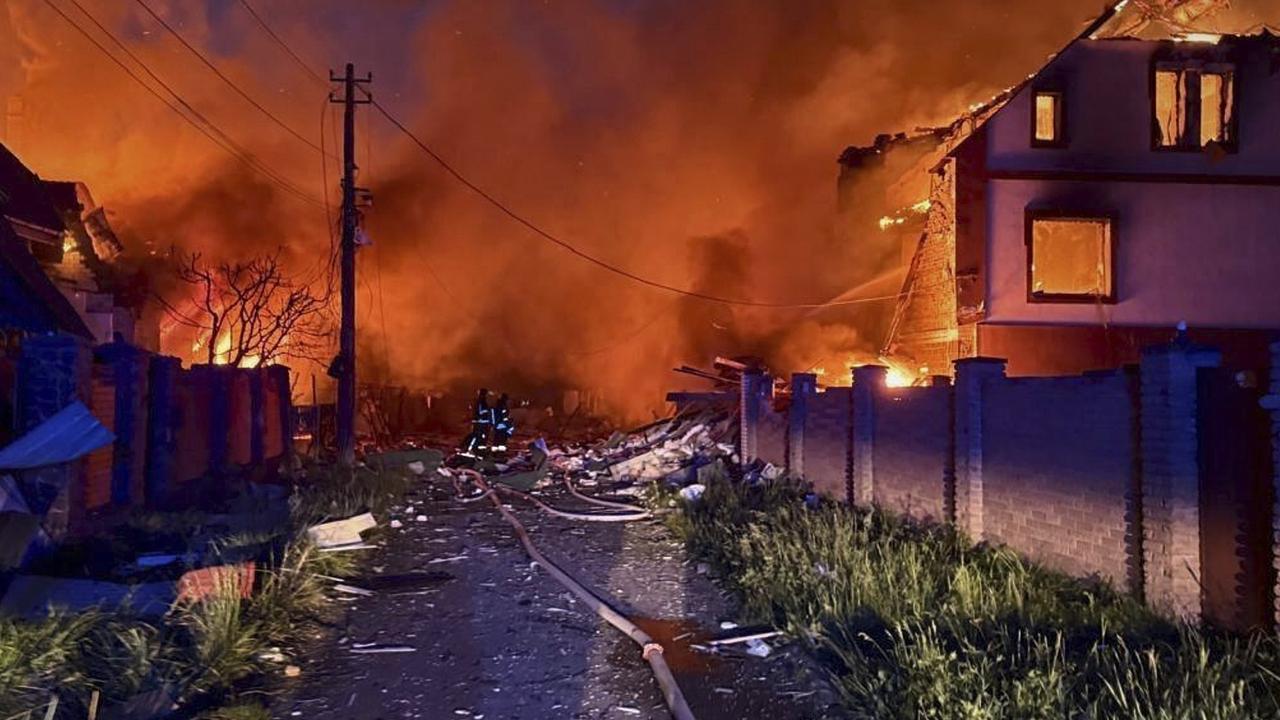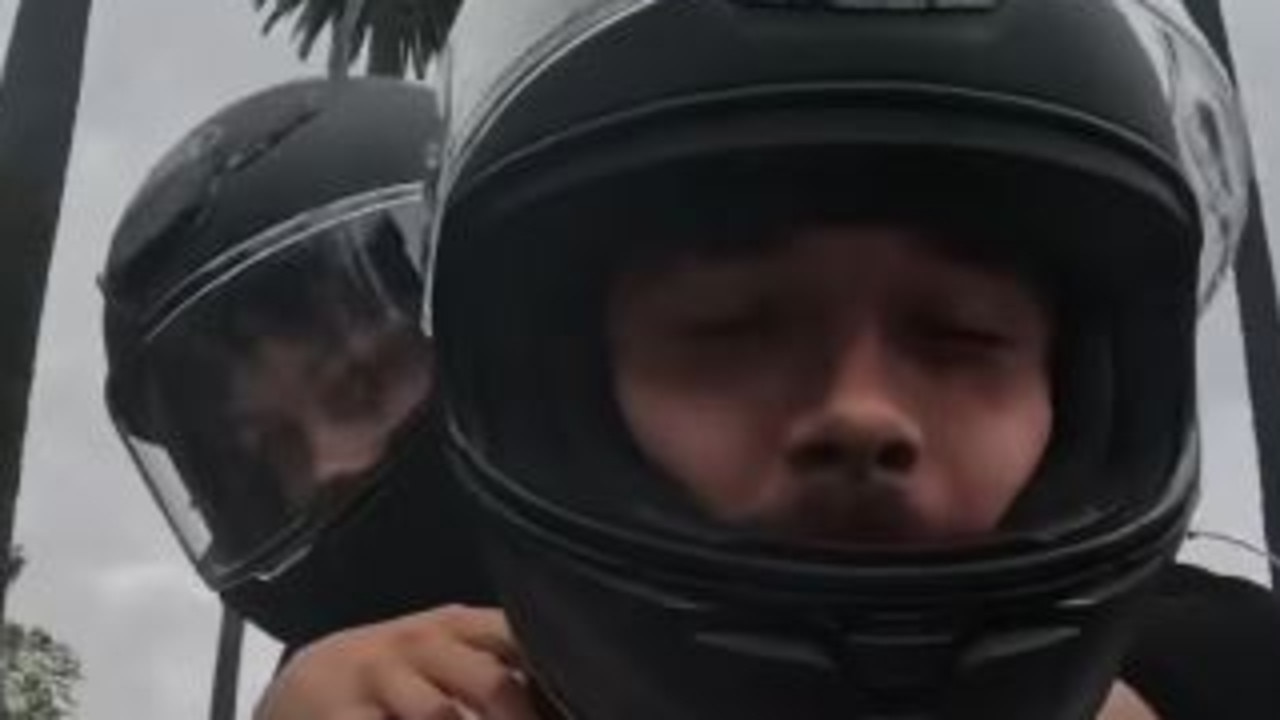Russia-Ukraine war: Vladimir Putin accused of deporting Ukrainians to ‘filtration camps’
Ukrainians are allegedly being “deported violently” into Russia and taken to “filtration camps” in scenes compared to WWII.

World
Don't miss out on the headlines from World. Followed categories will be added to My News.
Vladimir Putin is accused of deporting Ukrainians to “filtration camps” after confiscating their documents and phones.
Mariupol City authorities claimed that more than 1000 Mariupol residents had been forcibly taken to Russia.
“The occupiers are sending the residents of Mariupol to filtration camps, checking their phones and seizing (their) Ukrainian documents,” said Pavlo Kyrylenko, head of the Donetsk regional administration.
“I appeal to the international community: put pressure on Russia and its madman of a leader,” he said on Facebook.
A group of children stuck in a Mariupol clinic had been taken to Russian-controlled Donetsk, a carer and a relative of a clinic worker told AFP.
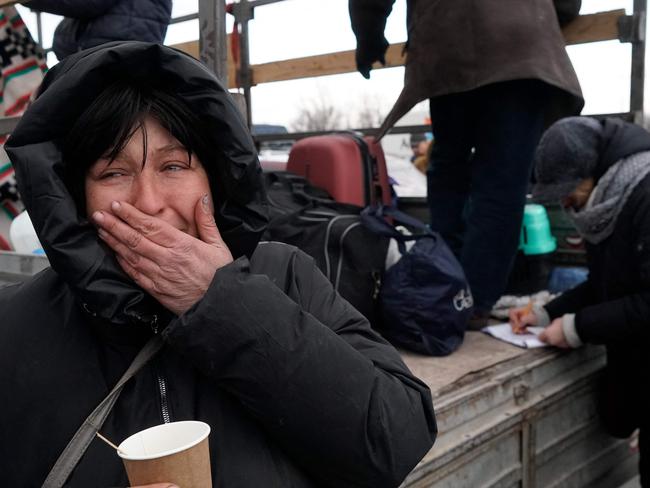
The Ukrainian Foreign Ministry has urged the international community to act now.
“The Russian occupation forces illegally deported to the territory of the Russian Federation 2389 children who were in the occupied districts of the Donetsk and Luhansk regions,” the Ukrainian Foreign Ministry said in a statement.
“Forced displacement of civilians into the territory of the aggressor state, including children, shows signs of abduction. Such actions are a gross violation of international law, in particular international humanitarian law.
“By destroying homes and killing the parents, Russia deprives Ukrainian children of parental care and puts their lives in further jeopardy in Russia.
“We call on the international community to respond to the illegal removal of children, to increase pressure on Russia to make it stop the barbaric war.”
Russian news agencies reported that buses carrying hundreds of refugees from the under-siege port city Mariupol had arrived in Russia in recent days.
Moscow officials said a trainload of more than 280 Ukrainians were being “rescued” from Mariupol, showing footage of them thanking Russian forces.
It now reports more than 62,000 people have been “evacuated” across the border.

Diana Berg, who recently escaped Mariupol, said friends have claimed people living in the Russia-controlled part of the city have been “deported violently” across the border.
“What I know is they bring people to Taganrog. There they have these trains provided to go to Tula and I don’t know what happens next,” Ms Berg told Good Morning Britain, The UK Express reports.
“I know they’re being deported violently and they take passports.
“I really don’t know what happens next and how to save those people who are now hostages not only in Mariupol.
“We now got hostages in Russia and in the DPR territory as well.”
Mariupol mayor Vadym Boichenko compared the alleged forced deportations to those conducted by Nazis during World War II.
“What the occupiers are doing today is familiar to the older generation, who saw the horrific events of World War II, when the Nazis forcibly captured people. It is hard to imagine that in the 21st century people can be forcibly taken to another country,” he said in a statement.
NAZI HOLOCAUST SURVIVOR KILLED IN RUSSIAN AIR STRIKE
A 96-year-old who survived four concentration camps during the Holocaust was killed in a Russian air strike in Ukraine.
Boris Romantschenko was living in a Kharkiv apartment hit during a Russian attack on Friday, his son and granddaughter told the Buchenwald Memorial Institute.
News of his death came as Ukraine’s Jewish president, Volodymyr Zelensky, compared Russia’s invasion to the Holocaust to pressure Israel to “make its choice” in the conflict.
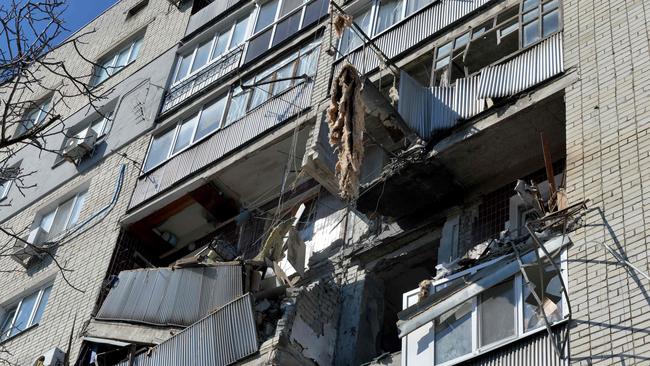
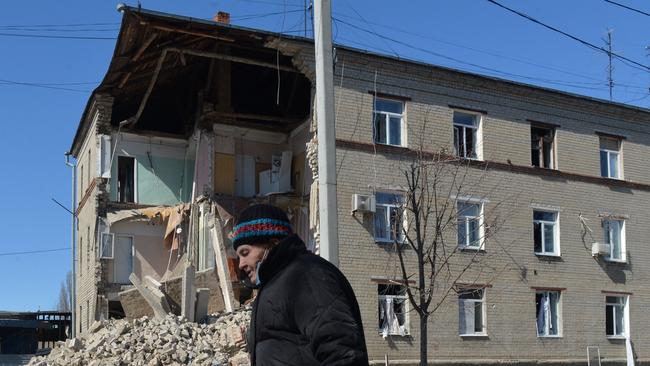
Heavy Russian shelling in the eastern city lead to the death of the World War II survivor who lived through the notorious Buchenwald concentration camp, as well as those at Peenemünde, Dora and Bergen Belsen.
An estimated 56,000 inmates died at the Buchenwald camp between 1937 until its liberation by the US Army in 1945.
“It is with dismay that we have to report the violent death of Boris Romantschenko in the war in Ukraine,” Buchenwald Memorial said in a statement.
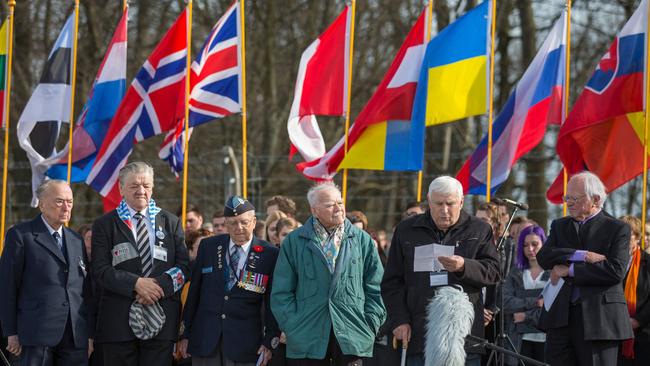
The Buchenwald Memorial described Mr Romantschenko as “a close friend” who, as the vice president of the Buchenwald-Dora International Committee, was committed to educating others about the horrors of the Nazi era.
Romantschenko was born into a family of farmers in Bondari, near the Ukrainian city of Sumy, on January 20, 1926.
Although he was not Jewish, he was taken by German soldiers when he was 16 years old and deported to the German city of Dortmund in 1942 to work as a forced labourer, as part of Nazi intimidation tactics against the Ukrainian population at the time.
A failed escape attempt landed him in the notorious Buchenwald concentration camp in 1943. He also spent time in the camps of Peenemuende, where he was forced to help build V2 rockets, and in Mittelbau-Dora and Bergen-Belsen.
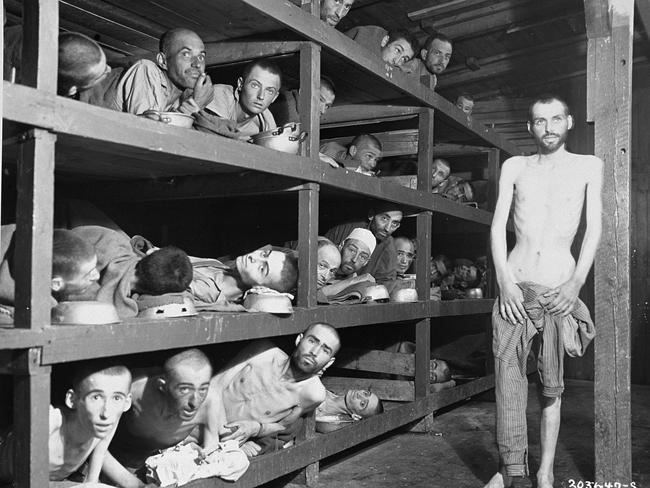
“This is what they call the ‘operation of denazification’,” said the head of Ukraine’s presidential office, Andriy Yermak, referring to Russian President Vladimir Putin’s widely disbelieved claim that ridding Ukraine of Nazis was one reason for Moscow’s invasion.
“The whole world sees Russia’s cruelty,” Yermak added.
The Buchenwald Memorial said Romantschenko’s death “shows how dangerous the war in Ukraine is, also for concentration camp survivors”.
The foundation said it had partnered with 30 other remembrance groups and associations to set up an “aid network” to support former Nazi persecutees in Ukraine, including through donations of food and medicine.
It also plans to offer practical help to survivors fleeing Ukraine by picking them up from the Ukrainian border or finding them accommodation in Germany.
There are still some 42,000 survivors of Nazi crimes living in Ukraine, according to the aid network.
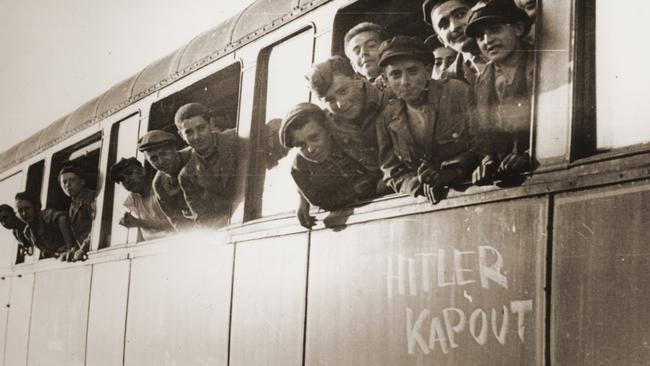
Vladimir Putin has claimed Russia’s “special military operation” was aimed at the de-Nazification of Ukraine, which has far-right elements in parts of its military like the Azov Battalion fighting in Mariupol.
Israeli Prime Minister Naftali Bennett has held regular phone calls with Zelensky and Putin as he attempted to sit on the fence between Ukraine and Russia, which has troops in Syria, across Israel’s northern border.
Zelensky thanked Mr Bennett for efforts to broker talks in a video released on Telegram, saying Ukraine was very grateful for his efforts.
“So sooner or later we could start the conversation with Russia. Perhaps in Jerusalem … This is the right place for finding peace. If this is possible,” Zelensky said.
“Of course, Israel has its own interests and defence strategy for their own citizens. We understand all of this,” he added.
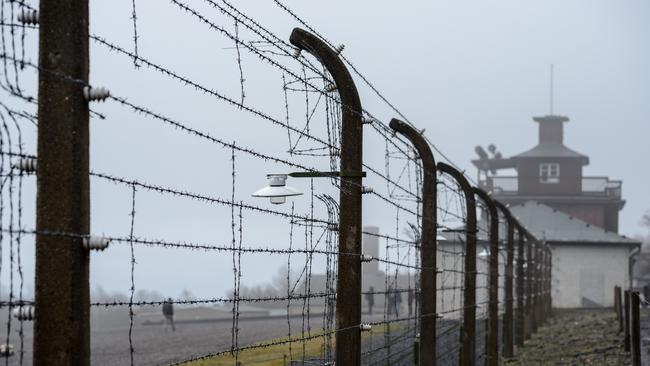
The Ukrainian president earlier spoke to Israeli politicians as part of his campaign to draw western countries into the conflict against Russia.
In his address to the Knesset, Zelensky urged Israel to abandon its effort to maintain neutrality.
“We can mediate between states but not between good and evil,” he said.
His comparisons of Putin’s aggression to the Holocaust drew drawing immediate criticism from some officials in Israel, which has not joined Western sanctions against Russia.
Israel has provided humanitarian assistance to Ukraine, but so far ruled out sending military hardware to the embattled country.
Originally published as Russia-Ukraine war: Vladimir Putin accused of deporting Ukrainians to ‘filtration camps’

